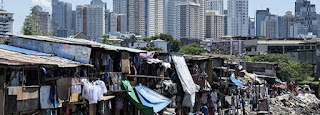What is Wrong with the Philippines?

by Christopher Ryan Maboloc Ateneo de Davao University Living in a poor country where hunger is the face of many people’s state of affairs, I have seen the terrible reality of human life which truly makes one doubt whether poverty can vanish from the earth. Inequality is a hard fact of life. About 25 years ago, fish was abundant in my beloved barrio, so they put a fishing port in the 90s. More than a decade has since gone by, and all the fishes have disappeared. They said the port will make the lives of people better, but after all, Fr. Pete Lamata of Davao City's Social Action Center was right in opposing the fish port. I have not understood him then. Right now I do. A hell lot of people in my barrio are still poor.








